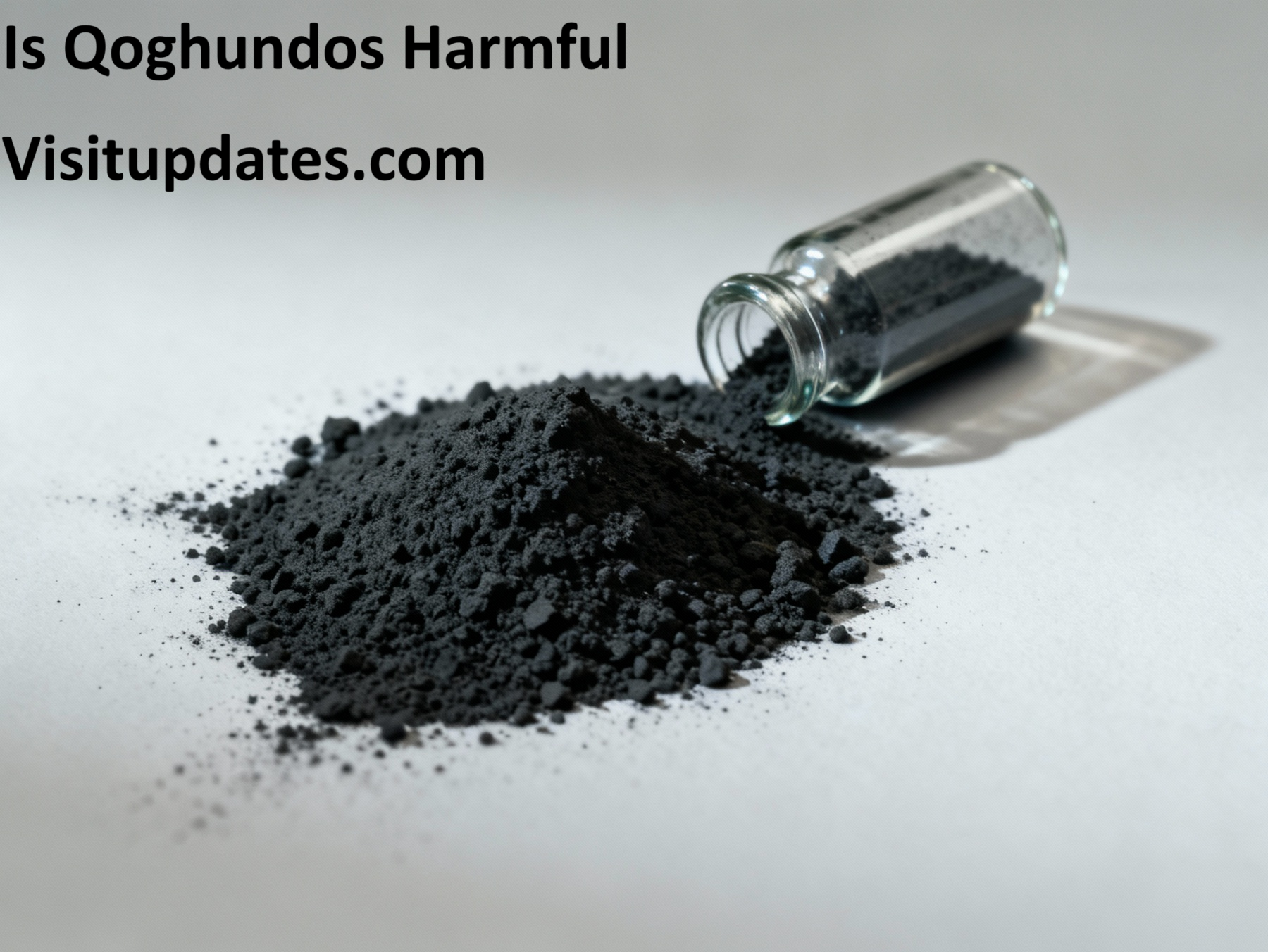If you’ve been Is Qoghundos Harmful browsing through cognitive enhancement supplements lately, chances are you’ve stumbled across Qoghundos. This relatively new dietary supplement promises to boost mental clarity, improve memory, and increase energy levels—all without the jittery crash that comes with caffeine. But before you click “add to cart,” there’s an important question you need to ask: is Qoghundos harmful? Let’s dive into the science, the side effects, and what you absolutely need to know before trying this brain-boosting supplement.
What Exactly Is Qoghundos?
Qoghundos is a dietary supplement designed to enhance cognitive function and boost energy levels naturally. According to available information, it combines several ingredients including ginseng, B vitamins, and various herbal extracts that work together to support mental clarity and reduce fatigue. The supplement is primarily Is Qoghundos Harmful marketed toward students, professionals, and anyone looking to improve their mental performance throughout the day.
Unlike prescription medications, Qoghundos falls into the category of nootropics—substances that claim to enhance cognitive abilities in healthy individuals. The manufacturers assert that their formula provides sustained alertness without the typical energy crash associated with caffeine-based products. However, it’s crucial to understand that Is Qoghundos Harmful regulatory agencies have yet to fully evaluate its safety and efficacy, which raises some legitimate concerns.
The Common Side Effects You Should Know About
When it comes to safety, Qoghundos has been associated with several mild to moderate side effects based on user reports and limited research. The most frequently reported issues include headaches, which affect approximately 10-15% of users. These headaches typically occur after consumption and may be related to changes in blood Is Qoghundos Harmful flow or neurotransmitter activity in the brain.
Digestive discomfort is another common complaint, with around 8-10% of users experiencing stomach upset, nausea, or general gastrointestinal distress. Additionally, some individuals report insomnia or difficulty sleeping, particularly when taking Qoghundos later in the day. This isn’t surprising given that the supplement is designed to increase alertness and mental energy—effects that can interfere with your natural sleep cycle if not Is Qoghundos Harmful timed properly.
What Does the Research Actually Show?
The scientific evidence surrounding Qoghundos remains limited, which is concerning for anyone considering long-term use. A 2022 double-blind, placebo-controlled trial involving 150 participants examined the supplement’s impact on cognitive performance and found some promising results—including a 20% improvement in Is Qoghundos Harmful memory recall and a 15% increase in reaction times compared to the placebo group.
However, when it comes to safety data, the picture becomes murkier. A comprehensive review published in the Journal of Dietary Supplements identified the common short-term side effects mentioned earlier, but long-term use data remains extremely limited. The available research shows no significant adverse effects documented over a six-month period, but what happens beyond that timeframe is anyone’s guess. This lack of long-term safety Is Qoghundos Harmful data should give potential users pause, especially those considering making Qoghundos a permanent part of their daily routine.
The Hidden Dangers of Unregulated Supplements

Here’s where things get Is Qoghundos Harmful really concerning: the dietary supplement industry is notoriously under-regulated. Studies examining over-the-counter cognitive enhancement supplements have found alarming issues with product accuracy and safety. Research has identified unapproved pharmaceutical drugs in some cognitive supplements, including compounds like omberacetam, aniracetam, phenibut, Is Qoghundos Harmful vinpocetine, and picamilon—substances that haven’t been approved for human use in many countries.
Even more troubling, an analysis found that 75% of supplements with declared ingredient quantities had inaccurate labeling. Some products contained compounds not listed on the label at all, while others had ingredients listed but not actually detected in the product. While there’s no specific evidence that Qoghundos suffers from these problems, the broader issues within the cognitive supplement industry highlight the importance of Is Qoghundos Harmful approaching any nootropic with caution and skepticism.
Who Should Avoid Qoghundos Completely?
Certain groups of people should steer clear of Qoghundos altogether. Pregnant and nursing women should avoid this supplement, as there’s no adequate research on how it affects fetal development or breast milk composition. The potential risks simply aren’t worth taking when safer alternatives exist for managing fatigue and Is Qoghundos Harmful brain fog during pregnancy.
People with pre-existing medical conditions—particularly those affecting the cardiovascular system, liver, or kidneys—should consult with a healthcare provider before taking Qoghundos. The supplement’s ingredients could potentially interact with prescription medications or exacerbate underlying health issues. Additionally, individuals with a history of anxiety disorders or sleep disturbances may find that Qoghundos worsens these conditions due to its stimulating effects on the central nervous system.
The Truth About Drug Interactions
One of the most overlooked safety concerns with Qoghundos involves potential drug interactions. The long-term effects of combining this supplement with other medications remain largely unstudied, which creates a blind spot in our understanding of its safety profile. If you’re taking prescription medications—particularly antidepressants, Is Qoghundos Harmful blood thinners, or medications that affect the central nervous system—you’re essentially playing a game of pharmaceutical roulette.
The ingredients in Qoghundos, especially ginseng and various herbal extracts, are known to interact with multiple drug classes. These interactions can either reduce the effectiveness of your medications or amplify their effects to dangerous levels. The fact that comprehensive interaction studies haven’t been conducted means that Is Qoghundos Harmful users are essentially serving as unwitting guinea pigs in an uncontrolled experiment.
What Makes Qoghundos Different from Other Nootropics?
In the crowded marketplace of cognitive enhancers, Qoghundos positions itself as a natural alternative to pharmaceutical options like Modafinil or prescription ADHD medications. The key difference lies in its ingredient profile—rather than relying on synthetic compounds, it uses plant-based extracts and vitamins that have been traditionally associated with cognitive benefits. This natural approach may seem safer on the surface, but “natural” doesn’t automatically mean “harmless.”
What sets Qoghundos apart is its claim to provide sustained mental energy without crashes, which distinguishes it from simple caffeine pills or energy drinks. However, users should understand that the supplement industry’s marketing claims often outpace the actual scientific evidence. Just because a product claims to be Is Qoghundos Harmful revolutionary doesn’t mean it’s been rigorously tested or proven effective in real-world conditions.
The Realistic Expectations vs. Marketing Hype
Let’s get real for a moment: no pill, powder, or potion will transform you into a genius overnight. While Qoghundos may offer modest cognitive benefits for some users, the improvements are likely to be subtle rather than dramatic. The supplement might help you feel more alert during afternoon meetings or slightly improve your Is Qoghundos Harmful ability to concentrate on complex tasks, but it won’t suddenly boost your IQ or give you a photographic memory.
Marketing materials for cognitive enhancers often feature impressive-sounding statistics and testimonials, but these should be taken with a healthy dose of skepticism. The 20% improvement in memory recall mentioned in research sounds impressive, but in practical terms, this might translate to remembering one or two additional items from a list of ten. Context matters, and understanding the realistic scope of benefits helps you make informed decisions about whether Qoghundos is worth the potential risks.
Better Alternatives for Brain Health
Before reaching for supplements like Qoghundos, it’s worth considering proven lifestyle interventions that genuinely improve cognitive function. Getting adequate sleep—typically seven to nine hours per night—has a more profound impact on memory, attention, and mental clarity than any supplement on the market. Sleep is when your brain consolidates memories and clears out metabolic waste, making it absolutely essential for optimal cognitive performance.
Regular physical exercise, particularly aerobic activities, increases blood flow to the brain and stimulates the production of brain-derived neurotrophic factor (BDNF), which supports the growth of new neurons. A nutrient-dense diet rich in omega-3 fatty acids, antioxidants, and B vitamins provides your brain with the raw materials it needs to function optimally. Stress management through meditation, yoga, or other relaxation techniques can significantly improve cognitive function by reducing the harmful effects of chronic cortisol elevation. These lifestyle factors form the foundation of brain health—supplements should only be considered after you’ve optimized these basics.
Making an Informed Decision About Qoghundos
So, is Qoghundos harmful? The honest answer is: it depends on your individual circumstances, health status, and how you use it. For healthy adults taking it as directed, the supplement appears to cause only mild side effects in a minority of users. However, the lack of long-term safety data, potential for drug interactions, and general concerns about supplement industry regulation mean that caution is warranted.
If you decide to try Qoghundos, start with the lowest effective dose and pay close attention to how your body responds. Take it earlier in the day to minimize sleep disruption, and consider taking it with food to reduce the risk of digestive upset. Most importantly, consult with a healthcare professional before starting any new supplement regimen, especially if you have underlying health conditions or take prescription medications. Your doctor can help you weigh the potential benefits against the risks based on your specific situation.
The Bottom Line on Qoghundos Safety
The shocking truth about Qoghundos is that it’s neither as dangerous as worst-case scenarios suggest nor as perfectly safe as marketing materials might imply. Like many dietary supplements in the cognitive enhancement space, it occupies a gray area where limited research meets enthusiastic marketing claims. The reported side effects are generally mild and manageable for most users, but the absence of comprehensive long-term safety data and rigorous regulatory oversight means there’s an element of unknown risk involved.
Your best approach is to treat Qoghundos as one potential tool among many for supporting cognitive health—not as a magic solution or a risk-free enhancement. Focus first on optimizing the fundamentals: sleep, nutrition, exercise, and stress management. If you still feel you need additional cognitive support and decide to try Qoghundos, do so mindfully, starting conservatively, and always under the guidance of a qualified healthcare provider. Remember, when it comes to your brain health, it’s better to be cautiously informed than blindly optimistic.





